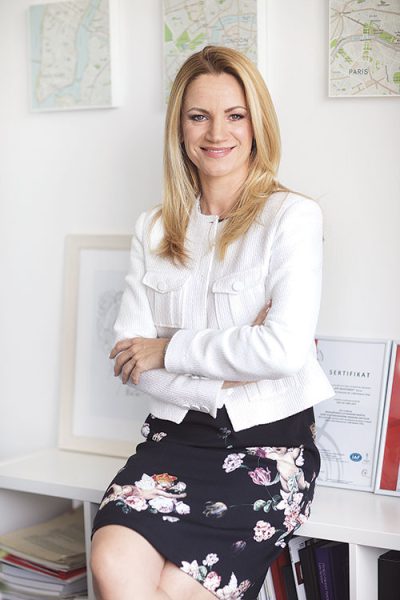The 6th UNECE International Forum on Public-Private Partnerships was held in Barcelona. It addressed a number of current challenges, such as climate change, the circular economy, digital transformation, green procurement and the blue economy, and how these challenges can be overcome through ‘People-first PPPs for Sustainable Development Goals’
So far, about three billion euros of private capital have been invested in projects in Serbia using the PPP model, which can overcome challenges faced by the public sector. So it is not surprising that more and more local self – governments are showing interest in this type of project.
What topics were covered at the Forum and what did you talk about as the only panellist from Serbia?

The main topics of the Forum were ‘People first PPPs’ for sustainable development goals in providing sustainable infrastructure, accelerating implementation of the 2030 Sustainable Development Agenda and presenting a new document developed by UNECE, which formulates a new approach to PPP project development. This document is called Evaluation Methodology, and can be an excellent tool to prepare and implement PPP projects for all participants in the process, especially for cities and municipalities.
What are the novelties in the new UNECE methodology for developing PPP projects?
The good news for the development and improvement of the PPP model is that the ‘People-first PPPs for SDG’ approach has been formulated (People in the first place in PPP, for the Sustainable Development Goals), and that this approach is accompanied by a new Evaluation Methodology.
The ‘Evaluation Methodology’ document can be an excellent tool to prepare and implement PPP projects for all participants in the process, especially for cities and municipalities
This document overcomes some of the weaknesses in the way PPP has been implemented so far and defines the PPP Evaluation Methodology for sustainable development goals.
The document will be available to all stakeholders as a tool for self-assessment of each PPP project to assess their compliance with the five ‘outcomes’ defined in this document.

It will assess whether a particular PPP project has increased access to basic services and reduced social inequality, improved economic effects and fiscal sustainability, taken care of the environment, promoted further project development and standardised documents, and involved all stakeholders in the project’s implementation.
The Evaluation Methodology is a complex document and could be applied in the preparation phase, especially before the project is adopted by the public body. But the staff of the public bodies must be trained beforehand, so that they can properly assess whether a project satisfies the public interest, whether it is in line with the goals of sustainable development.
Since a public-private partnership is a synergy between public needs and private initiative, and realising the public interest is a mutual goal in a project, potential private partners should be familiar with this methodology and apply it in preparing and implementing a project.
Where is Serbia on the world map of PPP projects?
I can freely say that Serbia is a regional leader in the PPP model. Some data show that according to this model, about three billion euros of private capital have been invested in projects that serve to overcome challenges faced by the public sector. More and more local self – governments in Serbia are showing interest in this type of project, in bringing order, especially in communal activities, and in providing quality services for the money of their fellow citizens.
Projects implemented in Serbia according to the public-private partnership model are mainly related to the improvement of communal services. These are most often projects in the field of energy efficiency (reconstruction of public lighting, improvement of heating systems, etc.), but also projects for public transport of passengers, rehabilitation and maintenance of roads, animal hygiene and others.
Projects implemented in Serbia according to the PPP model are mainly related to the improvement of communal services – from energy efficiency, through public transport and road maintenance to animal hygiene and others
By the way, in Serbia, the Law on Public-Private Partnerships and Concessions was passed in 2011. It has undergone some minor changes but it is characterised by a high degree of applicability. This is supported by the fact that the Commision for PPP of the Republic of Serbia has so far adopted more than 200 project proposals that meet the ‘public interest’, as defined by law, and 50% of adopted projects have been implemented.
Of course, there is always room for improvement of the legal framework that is in step with the development of PPP projects. For example, the Law on Public- Private Partnerships and Concessions recognises the category of ‘protection of public interest’ for which the methodology ‘value for money’ is applied, but this approach should be expanded in accordance with the definitions from the UNECE document and to protect public interest by setting the goals of sustainable development as an imperative, which are achieved by applying the methodology ‘value for people’.